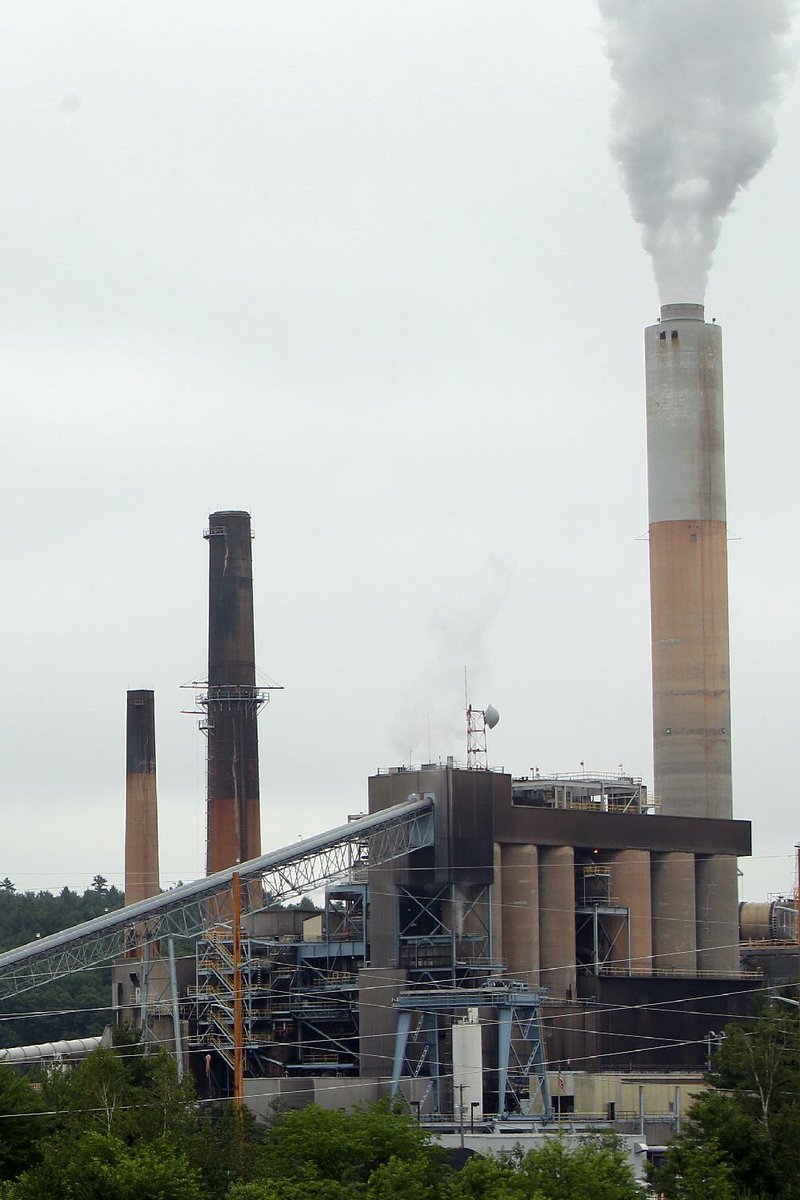BOW, N.H. - President Barack Obama’s push to fight global warming has triggered condemnation from the coal industry across the industrial Midwest, where state and local economies depend on the health of an energy sector facing strict new pollution limits.
But such concerns stretch even to New England, an environmentally focused region that long has felt the effects of drifting emissions from Rust Belt states.
Gary Long, the president of the Public Service Co. of New Hampshire, the state’s largest electric company, is one of those concerned.
Long said the president’s plan to impose limits on carbon dioxide emissions suddenly raises questions about the fate of the state’s two coal fired power plants, electricity rates for millions of customers and the ability to find new energy sources. And he also notes that New England has already invested billions of dollars in cleaner energy, agreed to cap its own carbon pollution and crafted plans to import Canadian hydroelectric power.
“New Hampshire’s always been ahead of the curve,” he said. “Does no good deed go unpunished?”
Long raised those concerns in the days after Obama began a major second-term drive to combat climate change, bypassing Congress by putting limits for the first time on carbon pollution from new and existing power plants.
At the core of his plan are controls on power plants that emit carbon dioxide - heat-trapping gases scientists have blamed for global warming.
Obama said the changes would reduce domestic carbon dioxide emissions by 17 percent between 2005 and 2020 and “put an end to the limitless dumping of carbon pollution.” The program also is to boost renewable energy production on federal lands, increase efficiency standards and prepare communities to deal with higher temperatures.
While the specific effect of Obama’s plans varies from region to region, energy industry officials across the nation warn of likely plant closures and electricity rate spikes, illustrating the practical and political challenges Obama faces while balancing the nation’s tepid economic recovery with an issue he says has dire implications for the planet’s future. Republican leaders, many still skeptical of the existence of man-made climate change, have seized on the potential short-term economic impact of what some call the president’s “war on coal” to criticize him and fellow Democrats.
The coal industry has been the most vocal opponent of the plan aside from Republican leaders and coal-state Democrats. Sen. Joe Manchin, a West Virginia Democrat, described the president’s policies last week as a “war on America.”
But Obama’s move was considered long overdue by environmentalists, a vocal segment of the Democratic Party base frustrated by Obama’s lack of progress on climate change.
“In New Hampshire, we’ve been waiting for this,” said Catherine Corkery, chapter director for the New Hampshire Sierra Club.
She described the industry concerns over plant closures and rates increases as “shortsighted,” predicting that thousands of new jobs focused on green energy development would replace those lost if fossil fuel plants are forced to close.
“Gary Long and those other industry types - and the coal types - might not be psyched about this carbon standard, but everybody else is excited,” Corkery said.
Despite Corkery’s enthusiasm, and beyond the political posturing for 2014 congressional campaigns, there is real concern in small towns from New Hampshire to West Virginia that depend on fossil-fuel production for their economic well-being.
Indeed, 650 miles from New Hampshire’s largest coal plant, employees at the Longview Power Plant in Maidsville, W. Va., fear the president is simply trying to shut down their operation.
“Our jobs are really on the line,” said Joseph Douglass, the environmental manager at the plant. It employs 95 people and has strong ties to local mines, quarries and trucking industries that employ as many as 500 more.
The facility is one of the nation’s newest and cleanest coal-fired power plants, with more than $500 million of its $2 billion price tag dedicated to environmental and air-quality controls.
Douglass said it does appear the administration is waging the “war on coal” that the industry has complained about for several years.
“Everybody wants to live in a clean and healthy environment. Everybody wants industry to do their best,” Douglass said. “We share, I think, more than we disagree about the need for a clean environment. But, you know, we have questions about some of the conclusions that have been reached and the direction that those conclusions are leading us in. Is this really the right thing to do? We’re not sure.”
While West Virginia has more than 20 coal-fired plants, New Hampshire has just two.
Information for this article was contributed by Vicki Smith, Seth Borenstein and Jennifer Agiesta of The Associated Press.
Front Section, Pages 5 on 07/05/2013
